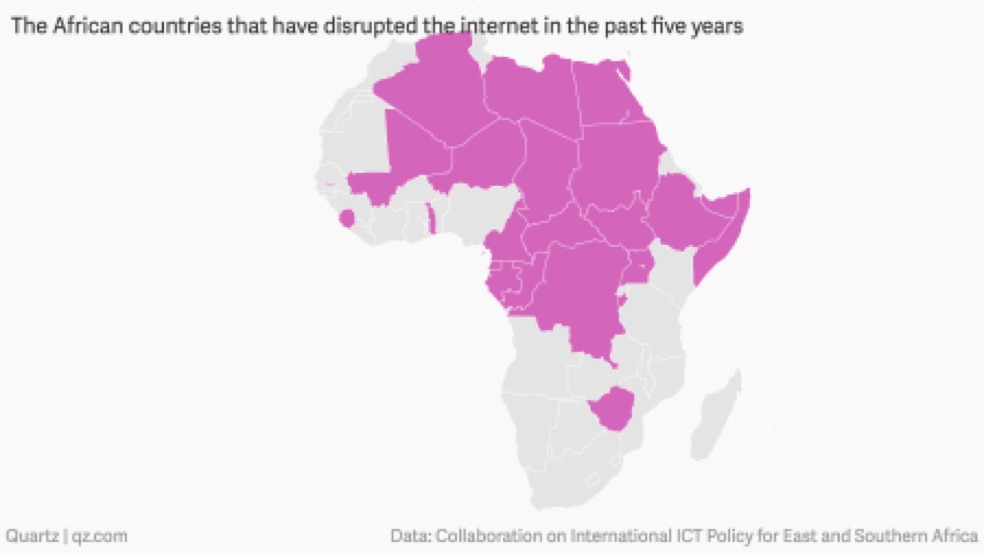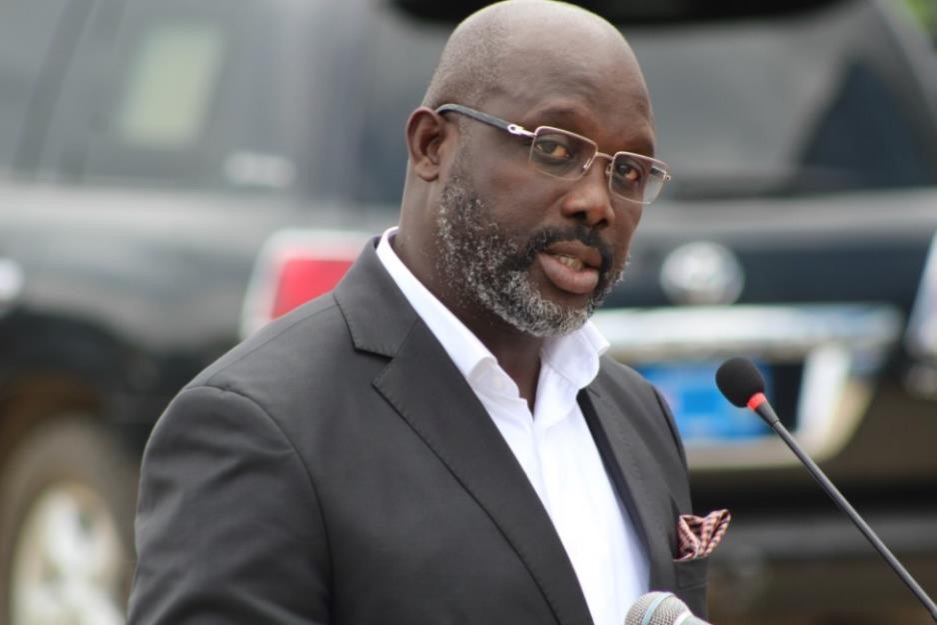In a pre-recorded message delivered to the nation to address steps he would take to revive the economy and deal with rampant corruption, President George Weah emphasized that he was running a country that was grounded in democratic principles.
“This is not Sudan, where one man ruled for 30 years and now the military is in control. This is not Venezuela, where citizens are denied their rights, where the legislature is unable to play its role, and humanitarian aid is blocked from reaching people in desperate need,†he told the Liberian people.
“In Liberia, while we will continue to face many challenges such as managing inflation, creating jobs, and fighting corruption; our commitment to democratic principles is strong and central to our country’s development and stability.â€
Yet, on Friday, the day of the June 7 protest, the government authorized telecommunications providers to shut down access to social media.
After being silent for the entire day about the social media ban, the two major telecommunications firms confirmed that the government had ordered the social media ban.
“Orange apologizes for difficulties in using some social media platforms on the internet on the 7th of June due to restrictions on services ordered by the Government of Liberia for national security reasons,†Orange announced on Saturday.
Lonestar Cell MTN also said it had collaborated with the government’s directive.
“As a good corporate citizen, we operate with the priority of ensuring the security and safety of our employees and customers, whilst ensuring that we meet all laws, regulatory obligations, and directives as issued by the relevant authorities,†the company said.
Information Minister Eugene Nagbe also confirmed the action to Al Jazeera: “There have been targeted disruption on social media platforms. In the interest of national security, the government has proceeded in this manner and not to cause total disruption of the internet, but the national security apparatus determined that some social media platforms are to be disrupted and that has happened.â€
Interestingly enough, four days earlier, Sudan had shut down access to the internet amid ongoing protests to transition the country to a democracy. This tactic had been used before by former dictator Omar al-Bashir in an attempt to contain protests.
In fact, President Weah has taken a move that has been typically employed in countries were democratic tenets are not often upheld – ones ruled by dictators. These include countries like Uganda, Cameroon, and Equatorial Guinea. It also happens in countries like Chad, where President Idriss Deby has blocked social media since 2018 after changing the constitution to allow him to remain in power until 2033.
Quartz notes that “of the 22 African states that have disrupted [internet] connectivity over the past five years, 77% are listed as dictatorships, while 23% are considered partial democracies.â€

Before June 7, Liberia was among African countries that had not disrupted the internet. Photo: Quartz Africa
This move by the government will certainly set Liberia back in the one area Liberia has outperformed its African counterparts over the past decade.
During former president Ellen Johnson Sirleaf’s term in office, Liberia generally performed well in the Ibrahim Index of African Governance’s Participation and Human Rights category. In fact, this is Sirleaf’s lasting legacy on Liberia – the engendering of the respect for civil and political rights and freedoms. In last year’s Ibrahim Index, Liberia ranked 18th in this category of all 54 African countries.
More troubling, President Weah’s government’s decision to block social media came a day after he gave a speech where he threatened citizens who would dare to insult his government.
“Those that are constantly insulting the president, I want to be clear, that after this, there will be no citizen in this country – and I can defy you – that will ever insult the president and think you will walk in the street freely,†Weah said.
“If you have your views, express your views. But any insults, and any threats, that citizen will be dealt with under the law.â€
There is no good reason to block all social media platforms just because there is a threat. After all, the government wouldn’t and shouldn’t shut down all radio stations because one decides to broadcast messages inciting violence – instead, security institutions would take action against the specific individuals and the station violating the law.
Regardless of whatever threat the government perceived social media posed, there are many effective options available that do not include violating the people’s right to access and share information. Not only does Facebook – the platform most used by Liberians – allow anyone to report issues with posts that violate its rules, but the company also collaborates with law enforcement agencies in many jurisdictions.
In fact, Facebook’s Community Standards has rules against statements meant to incite violence, organizations dedicated to criminal activities and organized crime, or using Facebook to coordinate crime.
“We remove content, disable accounts, and work with law enforcement when we believe there is a genuine risk of physical harm or direct threats to public safety,†Facebook’s Community Standards reads.
Many other social media platforms operate similarly. This is why – in addition to a much stronger protection of rights – we have not heard of an American jurisdiction shutting down social media.
Going forward, the government will have to do better in establishing a special task force within the Ministry of Justice to identify and report threats that undermine our peace anywhere on the internet, whether on social media or other platforms. And they have to do this in a way that does not try to curb dissenting opinions – otherwise, we will soon be no different than Sudan.
Featured photo by Zeze Ballah



